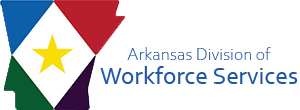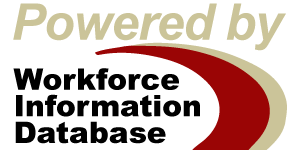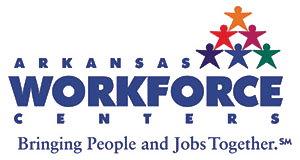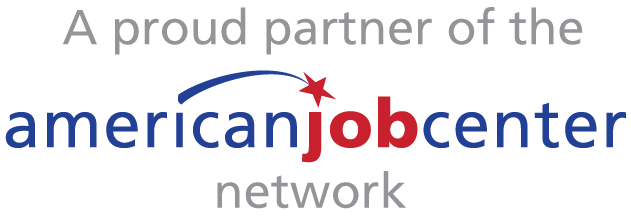Skills Projections
Which skills are expected to have the most job opportunities?
What kinds of knowledge are most important?
How about top work activities?
Find out from the links below.
Skills Projections are based on two factors: Occupational Projections and O*NET Skills data. When a skill is determined by the US Department of Labor to be moderately important and moderately required for an occupation, that occupation's projections are factored into the skills projections. Projections are calculated for Content Skills, Knowledge Domains, and Generalized Work Activities. The following tables show the top 15 for each type of data set. All projections are ordered by the number of total job openings in the 2019-2021 project
(Learned capabilities that allow workers to master and perform the specific activities of their jobs)
| Skills | Job Demand | Description |
| Active Listening | 60,555 | Giving full attention to what other people are saying, taking time to understand the points being made, asking questions as appropriate, and not interrupting at inappropriate times. |
| Speaking | 57,891 | Talking to others to convey information effectively. |
| Reading Comprehension | 29,925 | Understanding written sentences and paragraphs in work-related documents. |
| Social Perceptiveness | 26,444 | Being aware of others’ reactions and understanding why they react as they do. |
| Service Orientation | 16,208 | Actively looking for ways to help people. |
| Writing | 15,630 | Communicating effectively in writing as appropriate for the needs of the audience. |
| Critical Thinking | 15,250 | Using logic and reasoning to identify the strengths and weaknesses of alternative solutions, conclusions or approaches to problems. |
| Monitoring | 15,172 | Monitoring/Assessing performance of yourself, other individuals, or organizations to make improvements or take corrective action. |
| Instructing | 13,175 | Teaching others how to do something. |
| Coordination | 13,003 | Adjusting actions in relation to others' actions. |
| Judgment and Decision Making | 11,561 | Considering the relative costs and benefits of potential actions to choose the most appropriate one. |
| Learning Strategies | 8,607 | Selecting and using training/instructional methods and procedures appropriate for the situation when learning or teaching new things. |
| Time Management | 4,626 | Managing one’s own time and the time of others. |
| Repairing | 4,552 | Repairing machines or systems using the needed tools. |
| Equipment Maintenance | 4,385 | Performing routine maintenance on equipment and determining when and what kind of maintenance is needed. |
| Management of Personnel Resources | 3,919 | Motivating, developing, and directing people as they work, identifying the best people for the job. |
(Learned sets of facts and standards required by many work situations)
| Knowledges | Total Demand | Description |
| Customer and Personal Service | 124,078 | Knowledge of principles and processes for providing customer and personal services. This includes customer needs assessment, meeting quality standards for services, and evaluation of customer satisfaction. |
| English Language | 56,138 | Knowledge of the structure and content of the English language, including the meaning and spelling of words, rules of composition, and grammar. |
| Administration and Management | 26,990 | Knowledge of business and management principles involved in strategic planning, resource allocation, human resources modeling, leadership technique, production methods, and coordination of people and resources. |
| Clerical | 22,777 | Knowledge of administrative and clerical procedures and systems such as word processing, managing files and records, stenography and transcription, designing forms, and other office procedures and terminology. |
| Education and Training | 15,952 | Knowledge of principles and methods for curriculum and training design, teaching and instruction for individuals and groups, and the measurement of training effects. |
| Sales and Marketing | 15,158 | Knowledge of principles and methods for showing, promoting, and selling products or services. This includes marketing strategy and tactics, product demonstration, sales techniques, and sales control systems. |
| Psychology | 13,228 | Knowledge of human behavior and performance; individual differences in ability, personality, and interests; learning and motivation; psychological research methods; and the assessment and treatment of behavioral and affective disorders. |
| Mechanical | 12,380 | Knowledge of machines and tools, including their designs, uses, repair, and maintenance. |
| Medicine and Dentistry | 11,059 | Knowledge of the information and techniques needed to diagnose and treat human injuries, diseases, and deformities. This includes symptoms, treatment alternatives, drug properties and interactions, and preventive health-care measures. |
| Building and Construction | 10,518 | Knowledge of materials, methods, and the tools involved in the construction or repair of houses, buildings, or other structures such as highways and roads. |
| Mathematics | 7,964 | Knowledge of arithmetic, algebra, geometry, calculus, statistics, and their applications. |
| Computers and Electronics | 6,689 | Knowledge of circuit boards, processors, chips, electronic equipment, and computer hardware and software, including applications and programming. |
| Production and Processing | 6,652 | Knowledge of raw materials, production processes, quality control, costs, and other techniques for maximizing the effective manufacture and distribution of goods. |
| Public Safety and Security | 5,547 | Knowledge of relevant equipment, policies, procedures, and strategies to promote effective local, state, or national security operations for the protection of people, data, property, and institutions. |
| Economics and Accounting | 4,533 | Knowledge of economic and accounting principles and practices, the financial markets, banking and the analysis and reporting of financial data. |
(The types of tasks that are common to many jobs)
| Generalized Work Activities | Total Demand | Description |
| Getting Information | 169,137 | Observing, receiving, and otherwise obtaining information from all relevant sources. |
| Communicating with Supervisors, Peers, or Subordinates | 149,822 | Providing information to supervisors, co-workers, and subordinates by telephone, in written form, e-mail, or in person. |
| Making Decisions and Solving Problems | 99,789 | Analyzing information and evaluating results to choose the best solution and solve problems. |
| Interacting with Computers | 88,178 | Using computers and computer systems (including hardware and software) to program, write software, set up functions, enter data, or process information. |
| Performing for or Working Directly with the Public | 87,477 | Performing for people or dealing directly with the public. This includes serving customers in restaurants and stores, and receiving clients or guests. |
| Organizing, Planning, and Prioritizing Work | 73,896 | Developing specific goals and plans to prioritize, organize, and accomplish your work. |
| Documenting/Recording Information | 63,597 | Entering, transcribing, recording, storing, or maintaining information in written or electronic/magnetic form. |
| Establishing and Maintaining Interpersonal Relationships | 61,085 | Developing constructive and cooperative working relationships with others, and maintaining them over time. |
| Identifying Objects, Actions, and Events | 56,565 | Identifying information by categorizing, estimating, recognizing differences or similarities, and detecting changes in circumstances or events. |
| Updating and Using Relevant Knowledge | 52,553 | Keeping up-to-date technically and applying new knowledge to your job. |
| Assisting and Caring for Others | 42,832 | Providing personal assistance, medical attention, emotional support, or other personal care to others such as coworkers, customers, or patients. |
| Communicating with Persons Outside Organization | 37,492 | Communicating with people outside the organization, representing the organization to customers, the public, government, and other external sources. This information can be exchanged in person, in writing, or by telephone or e-mail. |
| Evaluating Information to Determine Compliance with Standards | 35,212 | Using relevant information and individual judgment to determine whether events or processes comply with laws, regulations, or standards. |
| Processing Information | 34,556 | Compiling, coding, categorizing, calculating, tabulating, auditing, or verifying information or data. |
| Inspecting Equipment, Structures, or Material | 34,338 | Inspecting equipment, structures, or materials to identify the cause of errors or other problems or defects. |



